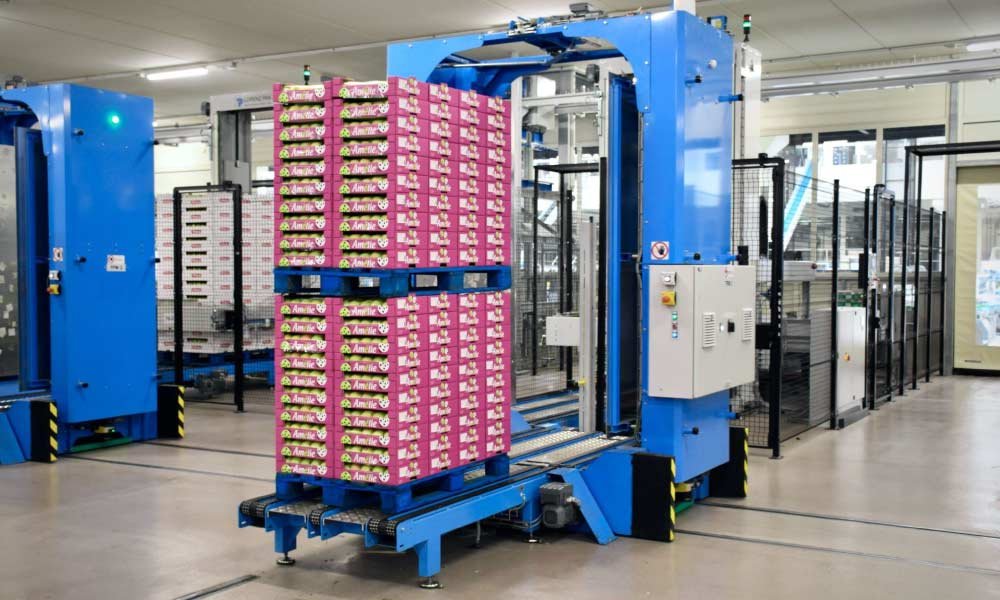Staying ahead of the competition requires more than a keen instinct and strong business acumen. Today’s business world is fast-paced and data-driven, and it is easy to be left behind if you are not taking full advantage of all the data available to you. Big data analytics is a game-changer. It enables companies to deliver superior customer service, make better-informed decisions, and optimize operations. Understanding big data and harnessing its potential can differentiate between success and failure. This article offers a glimpse into this dynamic and exciting field.
What Is Big Data Analytics?
Big data analytics has evolved from a buzzword to a critical business asset. A staggering 2.5 quintillion bytes are generated every day, and that data can be put to good use. In short, big data analytics involves collecting, processing, and analyzing vast datasets in an attempt to uncover valuable insights, patterns, and trends.
Real-World Use Cases of Big Data Analytics

Powerhouse companies harness the power of big data analytics and use the unearthed insights to improve their products, services, and customer satisfaction scores. Retail giants like Amazon and Netflix have revolutionized customer experiences by using big data to understand individual customers’ preferences. Their recommendation engines analyze customer behavior to suggest products or to tailor content to each user. The best online sports betting sites perform similar analysis to tailor personalized offers to their customers. If a customer has a penchant for betting on the NFL, there will be systems in place to offer promotions at the start of a new season, in the run-up to key match-ups, or in time for the season-ending Super Bowl.
Big data analytics are helpful for companies involved in any supply chain-driven environment. Delivery experts at UPS use big data analysis to streamline their operations. They track everything from stock levels to weather forecasts, allowing them to optimize routes and minimize delivery times. UPS knows weeks in advance if there is potential for severe weather systems to affect its ability to pick up and drop off deliveries and can make contingency plans way in advance.
Challenges and Solutions to Them
Like in all walks of life, big data analytics comes with challenges for any business implementing it within its organization. For example, data security and privacy provide a significant challenge. Compiling and storing vast amounts of data is one thing, but keeping it secure and safe from unscrupulous folks, such as cybercriminals, is another. Then, there are data protection regulations like GDPR and HIPAA to consider. Any company handling data of any kind needs a compliance officer in place to ensure proper procedures are followed.
Data integration can provide another challenge to companies, especially if they struggle with data residing in different formats and systems. Thankfully, there are data integration platforms that can assist in bringing information together.
The Future of Big Data Analytics
The world of big data analytics is always continually evolving, and technology plays a significant role. The rise in artificial intelligence and machine learning is reshaping how businesses and analysts harness the power of big data. AI-driven programs already automate insights, make predictive analyses, and do so in a fraction of the time it takes a human equivalent.
Using AI for this purpose comes with its own set of challenges. For example, the AI is only as good as it is programed. After all, it is essentially strings of code designed to act in a specific way. Any AI must be thoroughly vetted to ensure it compiles and analyzes data fairly and without discrimination. There is a growing emphasis on ethical data use, and big data analysts must be prepared to move with the times to ensure they remain compliant because the potential fines for compliance failure are astronomical.
As technology advances, more and more data is being processed at the edge. Instead of centralizing data in data centers or the cloud, edge computing works closer to “the edge” of the data source, reducing latency and making real-time decision-making possible. Edge computing is often paired with AI and machine learning algorithms, allowing devices to make intelligent decisions independently and without delay. Such technology is at the forefront of industrial automation and autonomous vehicles.
Conclusion
Big data analytics comes into its own in a business world where information is power. Having swathes of data is excellent, but if you cannot extrapolate that information and turn it into something usable, it is not worth the storage space it takes up.
The impact of big data analytics is far-reaching and extends across applications and industries. It can provide personalized customer experience, enhance health care, safeguard financial transactions, and optimize supply chains. Best of all, it can do this almost instantaneously when coupled with AI and machine learning applications.
Incorporating big data analytics into your business strategy is no longer simply an option; it is a necessity. Big data analytics represent a potent tool businesses can use to gain a competitive edge over their rivals. You can bet your bottom dollar that at least one of your competitors is utilizing vast amounts of data in the day-to-day running of their business.
Of course, as with any technology or system, big data analytics is not without its challenges. Data privacy and security should be paramount for businesses utilizing big data analytics. The systems protecting the data are not cheap but essential to prevent confidence-damaging data breaches and leaks.
There is also a need for more professionals with the required skills to make sense of the unprocessed and processed data. However, these are not impossible challenges; they can be overcome with the right strategy and commitment.
Big data analytics looks set to play a more integral role in businesses across all industries where data is produced. Improvements in edge computing enable real-time responses to critical situations, taking pressure off humans and allowing them to use their skills for other high-value tasks.
Also Read: Duco Launches Duco Cube Data Platform, a Big Data Platform for Analytics















